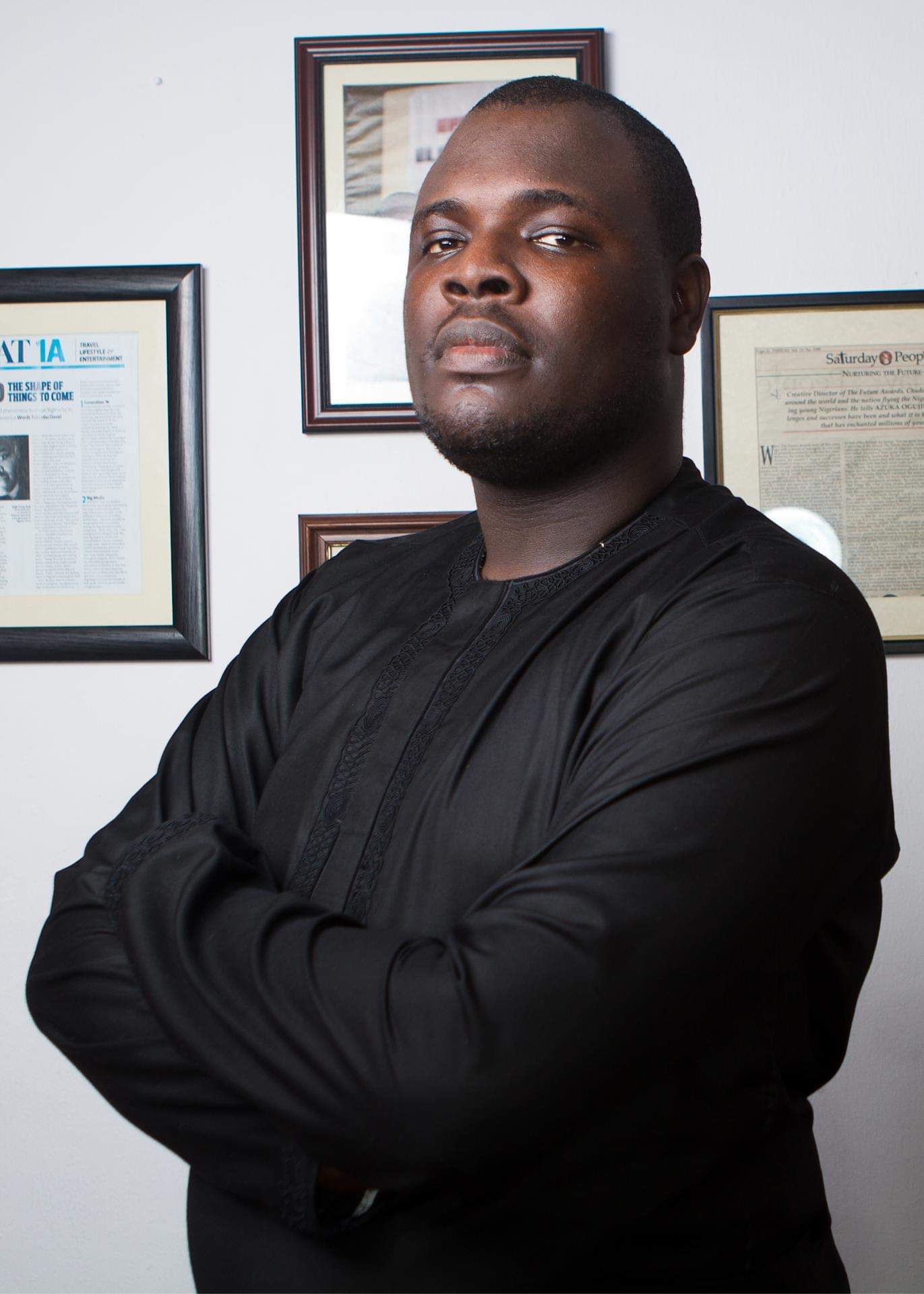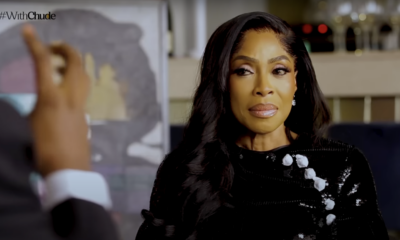Features
Chude Jideonwo’s 5 lessons at 35: Power Corrupts
 Why would a best friend you’re helping with a place to stay be so resentful that they would share a deep secret of yours to a random stranger?
Why would a best friend you’re helping with a place to stay be so resentful that they would share a deep secret of yours to a random stranger?
Why is there a prominent movie trope about the ‘emasculated’ man or woman who stays with a wealthy spouse for a while, quiet, but then one day erupts with rage over being ‘disrespected’?
Why would a colleague or a direct report with whom you had a very positive working relationship viciously turn against you because you made an assessment that led them to lose their job?
That last one really messed with the mind of one of our senior managers recently: “But I had only the best intentions,” she said of a message that had been poorly received by the recipient.
I smiled, the smile of a thousand experiences: “It’s power,” I told her. “Power corrupts.”
By this, I don’t mean that power corrupted her (even though the powerful are always at risk of that). I meant that power corrupted the relationship she thought she had with this other person. Power took a series of well-intention actions and turned them into something menacing and bullying, something far beyond what she intended or could even have conceived of. Because she had power, she had suddenly become a suspect in a suspected power play.
Power has a way of corrupting many of the things it touches.
I was empathetic to how late she had come to this lesson, because even I – in all my emotional naivety – had come to learn this lesson late.
“Because you are free and open with everyone you meet,” a friend said to me. “You assume everyone perceives you and your actions in that way. You take it for granted that their yes means yes and their no means no. It often doesn’t. They don’t see you how you see yourself. They can only see you through their eyes.”
It too-slowly dawned on me that I should never forget the power that I yield, and the ways that people interpret the actions of those who have power – especially people who consider themselves victims of an unfair and oppressive world.
I should have learnt this earlier. For instance, when I came out of school. At school, I was always late. No matter how strongly I willed it, I was late. To school, to class, to assembly, to practice. And because I had no visible power, there was nothing read to it: just a silly little boy who couldn’t get his act together. I was flogged for it, punished for it, sent to the back of the class.
But suddenly, a few years after, I was a manager, or mildly famous. And that same weakness from my childhood suddenly became something menacing to others.
“You are trying to show us you are important,” I heard someone say once to my alarm. “He is always late – and I am sure it is deliberate. Small money that he has o,” someone reported to me from another – a friend.
Examples small and big like that abound, but it yet took me too long to understand the power of power to poison everything – in a world where people don’t assume good faith or best intention.
To understand that ‘But we are also friends’ is not something that can be taken for granted when you have the power to hire and fire the person, that ‘Don’t have a romantic relationship with anyone over whom you exercise power’ is not just a question of common sense, it is also one of protection – for the other and for yourself, that assuming you can borrow a friend money and expect only goodwill is like imagining a dog can no longer bite because it now eats packaged food.
Power corrupts everything. The more the power – what we now language in mainstream culture as ‘power differential’ – the more its power to corrupt.
Many – consciously, unconsciously – impute intention to people who are powerful, assume those people are already wielding that power over them, and begin to relate with or respond to those people based on that assumption.
Expecting that the person is trying to coerce them, they begin to manipulate the situation. Believing they have no choice in a matter, they immediately go on the offensive. Assuming the person is not going to take no for an answer, they give a dishonest yes. Having seen power used against people in some other context, they imagine everyone who has power is seeking to do the same. Eat or be eaten, they think. “This is what I must do to survive.”
If you have more power than most, this is no cause for paranoia (even if it is cause for self-protection now that you know). Don’t apologise for having power. Don’t feel guilty about having power. I don’t. But I now know to acknowledge the possibility that when you have power people will tell you what they think you want to hear, they will believe you are going to use the power over them (and sometimes they will be right), and many will assume they no longer have any personal power because you have more. They will act out in duplicitous ways in order to ‘survive’, and they may even blame you for their behaviour.
Money. Influence. Fame. Position. Networks.
“You can’t have power,” I wrote to myself sometime ago. “And be naïve about it. The effects of naivety are too costly – to yourself and to others.”
“Can’t they see that I mean well.” No, many can’t.
Because power corrupts. On both ends. It colors perception, intention, interpretation, even memory, despite the best motivations. A raised voice from a friend is a sign of weakness. A raised voice by a boss is easily viewed as intimidation.
The roots of workplace bullying, parental manipulation, sexual harassment, patriarchy – which are events on the spectrum of power, even if they don’t rise to the level of legal or moral dilemmas – lie here.
That’s what a bunch of men don’t realise when they fight against ‘radical feminism’. That’s what a number of white people don’t understand when they resist #blacklivesmatter. That’s why ‘believe all women’ has gained such currency even if it’s a deeply dangerous sentiment. That’s why ‘I have religious freedom’ has not been a credible response to those who are fighting for queer or trans rights.
We must yet insist that people are innocent until proven guilty, and advocate restraint over woke ideology gone off the rails – but it is important to do that from a place of empathy.
Too many groups of people – men, white, old, rich, famous – have never really understand the effects of the power and priviledge they yielded unconsciously in the faces of people who have (or believe they have) too little. Too many people have been victims of what they consider the oppression of power for so long, that when they finally find their voices all they can do is scream.
So what does this mean for those who have power? Pay more attention.
With power comes responsibility. Be aware that, while you are also human, the effects of your mistakes will cast longer shadows. Be conscious of the way you have wielded power hurtfully, even if that was not the intention, even if you are a ‘good person’, even if you meant well. It doesn’t mean you are wrong. It means paying attention could make you a better person.
But this is not a copout for the less powerful, which is something the culture seems determined to enable these days. You are not rid of responsibility for how you respond to power just because you have less power than you want. In fact, that perpetual state of victimhood – the refusal to take responsibility for the choices you made in order to get what you wanted – is itself a form of power play. It’s a dynamic of manipulation.
To say an enthusiastic yes to a powerful person, for instance, in order to secure an advantage and then turn around to say you only did it because the person has more power is itself a power play. It is also vicious in a way that people often seek to deny. To be less powerful is not to be without agency. We can’t deny that people have power because they have less than others. To be black, gay, lesbian, young, employee, poor is not to be righteous.
The fact that a person has more power than you doesn’t mean you have no power. You can’t relinquish your personal power – and the responsibility it carries – because of your assumptions about the power of others. Both the person who has the power and the person engaging that power have a responsibility. Both the politician buying votes and the voter selling votes have responsibilities. Both the contractor offering you terms and the contractee accepting the terms have responsibilities. Power can corrupt both of them, both ways.
Because power exists, and is perceived in different ways, honesty will instruct us as to the truth that we all carry power (a commanding lesson I learnt from seasons of binge-watching Orange is the new Black) across board, at whatever level we find ourselves.
And, of course, power isn’t of essence a bad thing.
It can energise you, and it can protect you. It can be used to uplift some, it can shine the light for others, it can cause change in the world. Power can be a very good thing. But you have to be aware of it. You have to own up to it. You can’t be naïve about its effects.
You have to take responsibility for it. And you have to be deliberate about what you choose to do with it, and how you choose to show up in the world.
“Power can corrupt everything it touches, so do not put yourself in situations where you forget that ever again,” I wrote in a firm message to myself at the end of last year. “But power can also be a force for good.”
May I always remember both lessons.
Chude Jideonwo is co-founder of media group, RED and human flourishing company, Joy, Inc. To follow his daily blog and newsletter where he shares the lessons he learns every day, sign up on withchude.com.






















